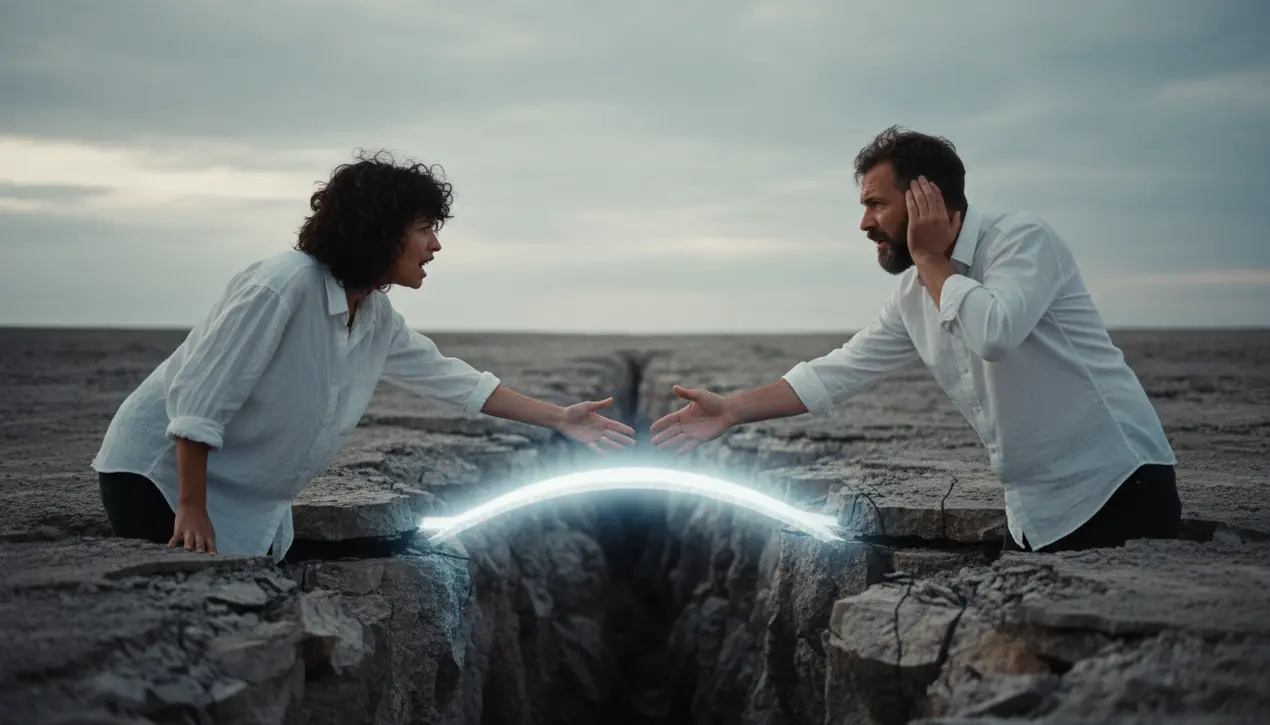
Scienceneuroscience
The Lifeline of Listening: A Forgotten Cure for Communication Breakdowns
LA
Laura Bennett
3 hours ago7 min read2 comments
That initial spark of connection, the profound feeling of being seen and understood, can vanish in an instant, leaving you stranded on opposite sides of a chasm. You find yourself in a bewildering standoff, each person clinging to their version of reality, gesticulating across a void.This is more than a simple misunderstanding; it is the core drama of human relationships. So, what is the way back when communication fails? In 1951, against the ominous backdrop of the Cold War, the influential psychologist Carl R.Rogers presented a radical answer. Speaking at the Centennial Conference on Communications, Rogers, later famed for his client-centered therapy, proposed a solution rooted not in political maneuvering, but in deep psychological principle.He argued that the greatest barrier to communication is our own ego. We often listen not to comprehend, but to prepare our counter-argument—to defend, to rebut, to win.Rogers' antidote was 'empathetic understanding,' a deliberate and courageous practice of seeing the world through the other person's eyes. This is not synonymous with agreement; it is about validation.It demands that we suspend our own judgments and certainties long enough to genuinely hear the feelings and meanings embedded in another's words, to truly walk in their shoes. He advocated for practical, deceptively simple techniques: paraphrasing the message you've received to confirm your understanding, and reflecting the emotional undercurrents you detect.I witnessed the power of this approach not in a clinical setting, but in a local dispute over a community garden. Two neighbors were locked in a silent feud until one finally ventured, 'So, if I'm understanding you, you feel that my tomato plants are a sign that I'm not respecting the boundary we set?' That single moment of reflection didn't instantly resolve the conflict, but it dissolved the hostility.It acknowledged the underlying feeling of disrespect—the true issue, not the tomatoes themselves—and created a sliver of common ground from which a practical compromise could be built. This is the difficult, unglamorous labor of human connection that Rogers championed.It stands in stark contrast to the rapid-fire, tweet-length debates that saturate modern discourse. It requires vulnerability, the risk of being changed by what we hear, and the willingness to prioritize the relationship over the need to be right. In an era that often feels perilously divided, Rogers' wisdom offers a vital lifeline—a reminder that the most powerful way to repair a communication breakdown is to first, and most courageously, learn to listen.
#communication
#psychology
#Carl Rogers
#conflict resolution
#relationships
#featured
Stay Informed. Act Smarter.
Get weekly highlights, major headlines, and expert insights — then put your knowledge to work in our live prediction markets.
Related News
Comments
Loading comments...
© 2025 Outpoll Service LTD. All rights reserved.